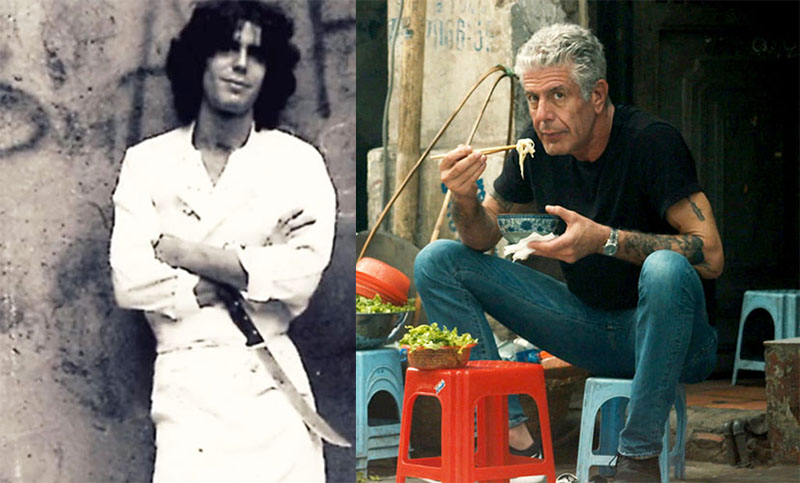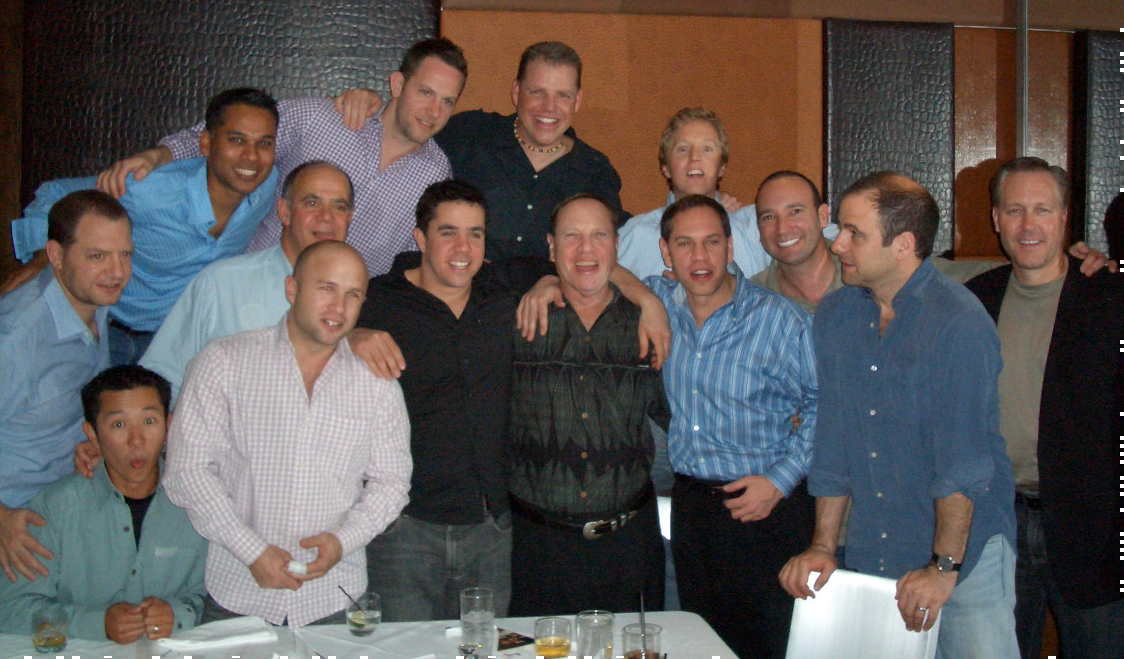One of the most embarrassing moments of my life happened when I was 12 years old and had recently moved to a new school. It’s a memory so vidid that I can still picture the pattern of the tile beneath my desk.
Our seventh grade basketball team was going to have its first game that night. I’d barely made the team as an alternate to begin with, but all of us were told that on game days, we needed to “dress nice.”
As we sat in math class, our teacher, Mr. Monier — who was also the basketball coach — told all of the players to stand up. We did. Then we sat back down. And then Monier, an incredibly likable guy who often kidded around with us students, pursed his lips in an effeminate manner, and said:
“Wow, Michael. That’s a very, umm, lovely sweater you have on. Did you pick that out this morning?”
To say that the class roared with laughter would be an understatement. My new classmates, including my new best friend, could not stop looking and laughing at the cream-and-tan, thick wool, argyle calamity of a cardigan. I looked like the grandfather in the Werther’s Original candy commercials. And I felt smaller in that moment than the Milk Dud buttons on my sweater.
But as mortified as I felt about not fitting in with my peers that day, it wasn’t a new sensation — just a bit more intense. In fact, I can’t remember a time when I truly felt like I did fit in. And not because of some goofy sweater that never should have made its way out the front door. It’s deeper. It’s internal. It’s psychological.
I started thinking about all of this the other night as I was watching a fascinating documentary about Anthony Bourdain’s life: “Roadrunner.” Bourdain was the globetrotting super-chef and best-selling author who became ubiquitously famous between 2013-18 when he wrote and starred in the award-winning “Parts Unknown” travel/culture docuseries.
Bourdain was a brilliant writer. His voiceovers on the show sounded more like poetry than TV copy. But Bourdain’s path was also one of a tortured soul. He left breadcrumbs in his written words and spoken soundbites all the way along. His exhilarating, yet much pained life came to an end on June 8, 2018, in an act of suicide in a hotel room in France.
There is a scene in the second half of “Roadrunner” where Bourdain is being filmed for “Parts Unknown.” He is talking to his girlfriend at the time, Asia Argento, who has also had her own public struggles. Bourdain asks Argento a question, but it’s really more of a statement:
“Is that a normal urge? I wanna be normal. I wanna be like everybody else. I kinda wanted to be like everybody else when I was a kid. At least for a while. I didn’t understand why I couldn’t be.”

Bourdain’s description of feeling different and not belonging is a theme that we see in countless dramas in film and literature. Fiction and non-fiction. It’s at the core of virtually every John Hughes movie and main character he’s ever created: Andie, Ducky, Bender, Brian, Samantha, Sporto, Allison, Farmer Ted, Del, Keith, Watts, Cameron, Clark, etc, etc.
J.D. Salinger’s “Holden Caulfield” character became a literary immortal because at 16 years of age he called out every “phony” he came into contact with. He felt different, alienated, and angry. But he was relentlessly honest.
Is that negative feeling of being different a part of what drove Anthony Bourdain to end his own story? He’s no teenager, but I can tell you that there are millions of adults — even ones who seem like they fit in — who often feel the very same way they did whenever it was that they first felt out of the loop. It’s happened to all of us.
Don’t get me wrong, I’ve always been good at making friends. Through three careers and stretches living in seven different states, I have true pals from all over the country. And if you ever watched me with my own friend groups, you’d likely not be able to tell that I don’t feel like I belong. But it happens again and again.
I once had 16 friends — half from California and half from Chicago — travel to Vegas for my 40th birthday. I planned the whole thing and we all had a blast, including me. Yet I remember feeling out of place during the trip. I’ve arranged get-togethers like this countless times, not to mention charity events, book release parties, etc. I’m a good host. But even in those self-created situations, I don’t always feel like I fit in.
This paradox of being both socially adept and yet feeling isolated at the same time sounds ridiculous. But there’s a reason for it: The feeling is not a reality — it’s a feeling. It starts somewhere within your subconscience, and then your body converts it into emotion.
On the other side of this mirror, there is always the potential to capture, harness and redirect this angst that we feel. And this is the great part: Feeling like you don’t fit in can be as stealthy and as powerful a weapon as a nuclear sub.
Feeling different from others — and being aware of it — makes you think. It makes you survey yourself; your mind and your soul. It makes you survey the field; to try to understand the world around us, even when it seems incomprehensible. And it can actually motivate you to try to make it better — even if it’s just by making yourself better. More open. More loving. More giving. More peaceful.
The desire to fit in is a natural one. After all, we humans are social beings and we get conditioned to having social needs as we make our way through life. Even if many of these self-perceived needs aren’t truly necessary.
But even when one does achieve the desired outcome of “fitting in” — it’s a totally overrated state of being. A person may feel more at ease for a brief spell, but it’s really because they’re making an effort not to be exactly who they are. A shame.
If you stop and think about it, “fitting-in” is an almost oxymoronic phrase to begin with. There are 7.8 billion people on the planet. Outside of the basic human form, every single one of us is different. And that’s how we’re supposed to be.
As I said, I’m far from a master of this principle. I just know it to be true. I also know that any semi-original thought I’ve ever had or passion project I’ve ever undertaken was driven by the side of me that has always felt different. It’s merely a matter of embracing it. And then leveraging it.
Anthony Bourdain was in a constant wrestling match with his own psyche — for a whole bunch of reasons. But look at all of the beautiful things he created during the 61 years that he was embracing his differentness. I think it was the best part of him.
One last 80’s movie reference to drive it home: In “Risky Business,” Tom Cruise’s character “Joel” is doing all the safe things because he’s so worried about his future and keeping up with his friends in the college acceptance competition that was a Hunger Games even back then.
After Joel admits this to his best friend “Miles,” played by Curtis Armstrong, Miles puts an arm around his shoulder and says:
“Joel, ya wanna know something? Every now and then, say ‘What the Fuck.’ ‘What the fuck’ gives you freedom. Freedom brings opportunity. Opportunity makes your future.”
Amen. Be who you’re gonna be. The rest will make its way to you.


